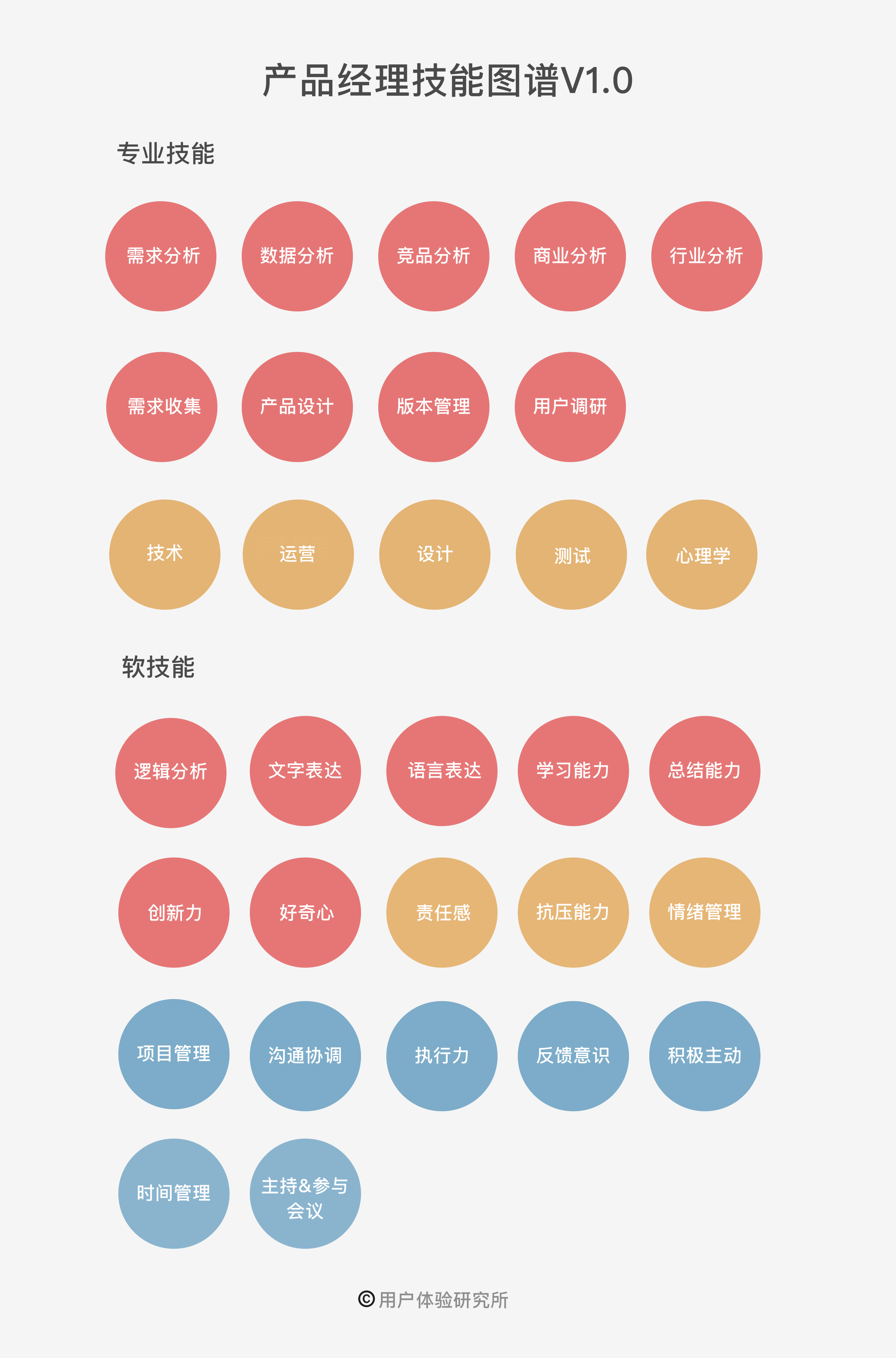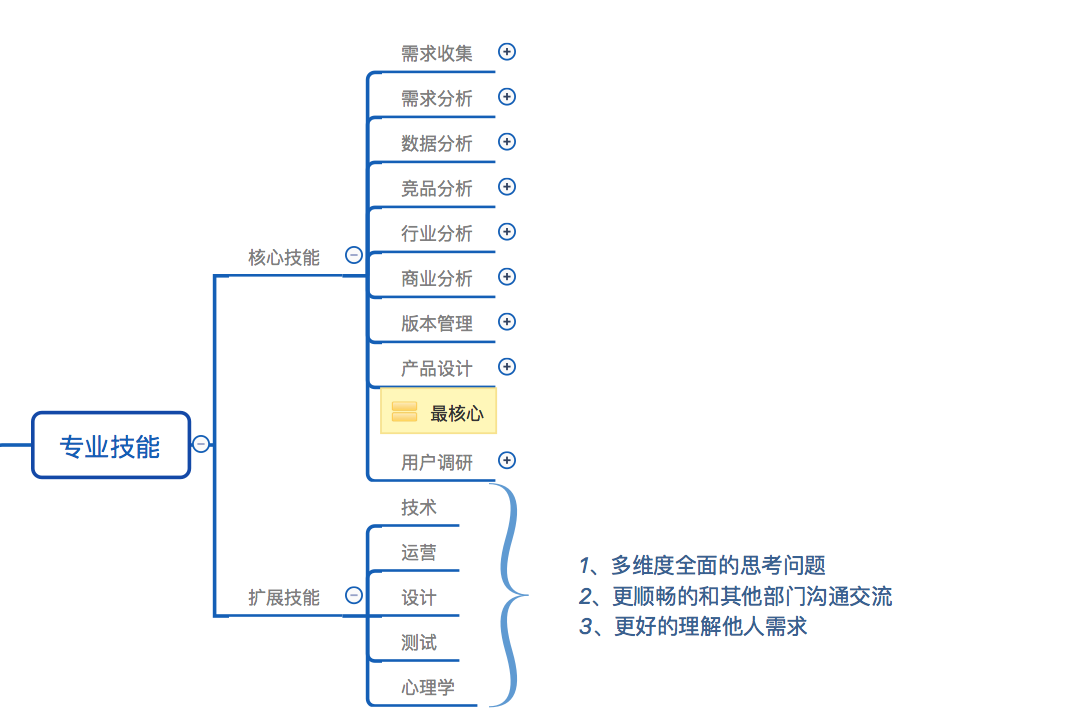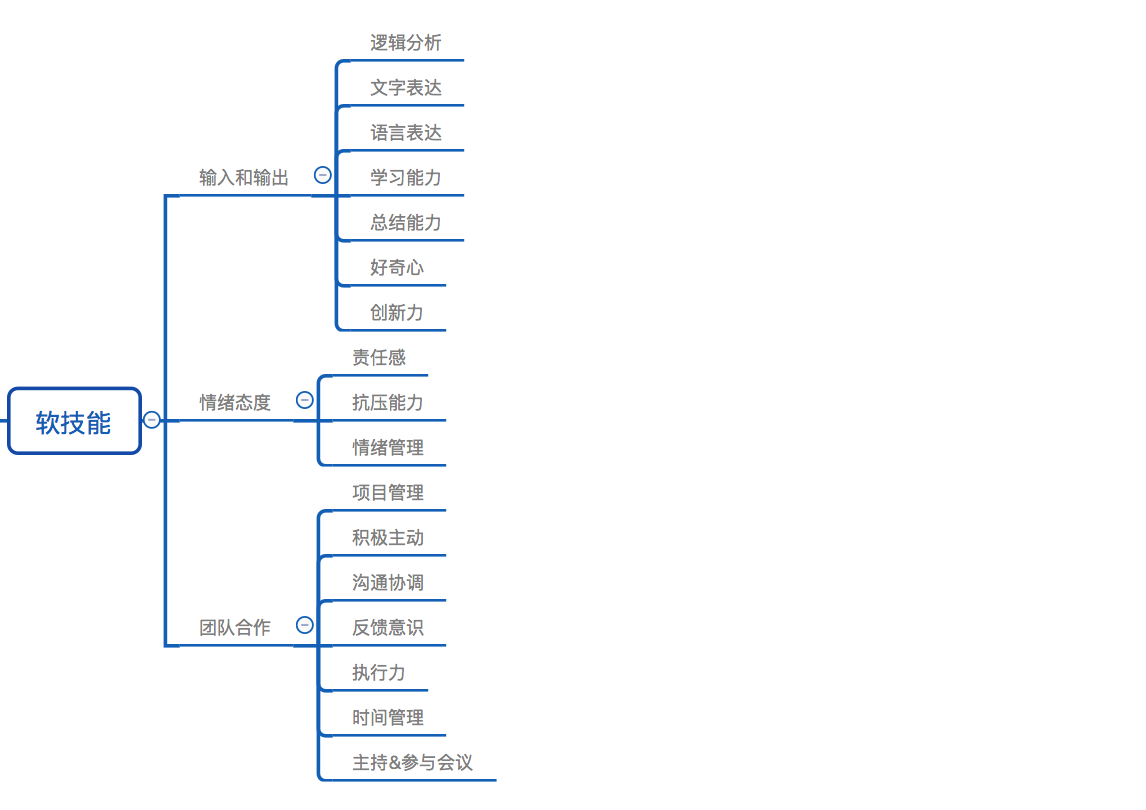Today, I will talk about the professional skills of product managers from a holistic perspective. Let me talk about a pain point. What skills do product managers need to master?
Editor’s note: This article comes from Everyone is a product manager , author Cynthia (WeChat public account ID: PM_Cynthia).
Today I want to talk to you about the essential skills of a product manager. I want to talk about this topic because some friends often ask me recently:
-
I want to change my career as a product manager. What should I learn?
-
I read a lot of product related materials, but there is no main line, I don’t know what to study?
-
I’ve recently fallen into a strange job circle and feel that I haven’t grown up. I don’t know what skills to improve next?
I think these problems should be those who are ready to join the industry or newcomers. They are also a pain point for everyone: I do n’t know what skills product managers need to master?
So next month, Shiyue will take you to analyze the essential skills of product managers. At the same time, I have summarized my daily workflow and my understanding of the position of product manager. I hope it will be helpful to you.
Talk about the post of product manager
When I started a few years ago, I told my relatives and friends that I am now a product manager. They all say: Wow, I’m a manager at such a young age.
An awkward response is needed at this time: just that the post name contains a manager, not a traditional manager. In fact, the name of this post has already confirmed the fact that there is more content in the job, higher requirements for personal abilities, and multi-faceted abilities, which can be described as “upper astronomy and lower geography”. I will not repeat the origin of this post here.
In recent years, with the increasing number of people in the industry, the job requirements have become higher and higher, and the job breakdown has become more and more obvious. Every working product manager needs to continuously learn and improve himself, and dig deeper in his own field.
What are the essential skills for a product manager?
Next, let ’s take a look at the job recruitment information and daily workflow, and then extract the necessary skills of the product manager from it, everyone should read it! !!
1. See job requirements from recruitment information
I identified some key content in the recruitment information: mining user needs, product lifecycle management, defining product functions, outputting requirements documents, prototype diagrams, communication and coordination among various departments, optimizing product experience based on data and user feedback, competing products Analyze, understand the industry, follow up on project progress, and more.
In fact, for the same position, each recruitment information is similar, and the job requirements are similar, but the targeted requirements of their respective industries and products will be added. (Note: The product managers of large companies and small companies are slightly different in their job content. For example, large companies will have separate interaction designer positions, so most of the prototype logic flow is left to the interaction designer. For small companies, The product manager will be responsible for part of the interaction design, such as drawing prototypes, information architecture, process combing, etc.)
From the recruitment information, we have a general understanding of the job requirements, and we have some bits and pieces in our minds. Next, combined with the daily work of the month, we take a look at the job content of the product manager as a whole.
2. Daily work of product manager
The figure describes the overall process from the generation to the implementation of requirements, including the following stages: requirement exploration, requirement definition, product design, development implementation, effect tracking, and iterative optimization.
At different stages of the project, the product manager’s focus is different and the required competencies are different. Of course, different years of product manager requirements are different. Different companies have different design processes and work tasks. (About the daily work content, it will not be expanded in detail here, subsequent articles will analyze this content in detail …)
I believe that after reading the above chart, you will have a preliminary overall understanding of the work that product managers have to do. To master, it is a gradual process. It gradually builds up step by step. When you are familiar with each of the above tasks, you will feel that you are amazing ????)
Next, we extract the professional and soft skills required by product managers from these tasks.
3. Essential skills for product managers
The following is a skill map of product managers compiled for your reference (skill map 1.0 version, which will be continuously added and optimized later)
The skills of product managers can be broadly divided into two categories: professional skills and soft skills.
(1) Professional skills
Skills that fall into the product job category, including: core skills and expanded skills.
Core skills: essential skills for daily work
Including requirements analysis, data analysis, competitive product analysis, business analysis, industry analysis, requirements collection, product design, version management, user research, etc. These skills are the professional skills we must master. Product managers at different stages require different levels of skills and focus.
For example, for a product manager who has just joined the industry, because most of the work is in the execution stage, he focuses more on landing tasks such as demand analysis, product design, and data analysis. And senior product managers, their focus will be more focused on business analysis, industry analysis, version management and other strategy-related work.
-
Requirements collection: You need to know how to collect requirements. For example: do user research, go to the application market / social platform to collect user feedback, proactive feedback from users in the product, focus on competing products, company development plans, mining needs through data analysis, boss / operation requirements, etc.
-
Requirement analysis: When you receive a requirement, don’t start making prototypes blindly. Instead, analyze what the purpose is behind the user’s needs and explore the underlying needs of the users. For example, the classic case: before the invention of the car, the developer asked the user what you want, and the user said that I want a fast horse. “Running fast horse” is actually a solution, not the needs of users. The user’s underlying needs are “hope to reach a certain place faster”. When the user’s needs are tapped, cars are produced.
-
Data analysis: Data is a tool for measuring the effectiveness of product functions. In the product development cycle, if this measurement link is missing, it will lead us to blindly do functions, thinking that we are constantly iterating and optimizing, and actually spinning in place. We canThrough data analysis, evaluate the effect of product revision (or new function), find key points for product improvement, etc.
-
Competitive analysis: different purposes, different analysis content. For example: mining market share and demand, when creating products from 0-1, it is more of a competitive analysis at the commercial level, which mainly analyzes product positioning, business models, operating ideas, profit models, marketing, etc. If iteratively optimize product functions, it is more about competitive product analysis at the functional experience level, mainly analyzing functions, content, interaction, and vision. We need to follow the competition in real time.
-
Industry analysis: that is, real-time attention to the dynamics of your product’s industry, and understanding of industry trends, will be more helpful for future product planning and new ideas.
-
Business analysis: Focus on your company’s business strategy and plan in real time, understand the company’s future development direction, and help the next product plan.
-
Version management: Almost every product is continuously optimized in iteration. We must have version iteration awareness and demand priority management capabilities. You need to know how to do version planning, resource scheduling, feature priority, and follow-up of version progress.
-
Product design: Including requirements into product functions, functions into information architecture, information architecture into prototype interface, and various flowchart design. Product design skills are one of the most important skills for getting started.
-
User survey: To design product functions centered on users, this requires us to approach target users, communicate with them more, pay attention to their dynamics, and understand their pain points and needs. Common research methods include qualitative research and quantitative research.
Extended skills: Skills that help work together
Including: technology, operations, design, testing, psychology, etc. Learning the knowledge of these related positions can help you communicate more smoothly with other departments and help us better understand the needs of others. At the same time, we can broaden our thinking angle and think about problems from a multi-dimensional perspective rather than a single product level.
(2) Soft skills
The so-called soft skills are common skills for people in various industries. Mastering these soft skills can make you more profitable in the workplace. As the number of working years increases, one’s soft skills will become more and more important. I divide it into three areas of competence: input and output, emotional attitude, and teamwork.
Input and output
Including: logic analysis, text expression, language expression, learning ability, summarizing ability, innovation ability, curiosity.
Everyone needs to constantly exercise their input and output capabilities. Can you learn something quickly? Can you express your views clearly at the meeting? Do you have a review summary at the end of each project? Are you curious about industry dynamics and new things?
Emotional attitude
Including: responsibility, stress resistance, and emotional management.
Emotions and attitudes determine a person’s workplace status. Are you full of energy every day or are you bereavement? Do you take on your due responsibilities? Can you adjust yourself well in the face of great pressure? Can you control your emotions when you are questioned?
Teamwork
Including: project management, proactive, communication and coordination, feedback awareness, execution, time management, hosting & participation in meetings.
In the process of teamwork, your soft skills will play an important role. Can you communicate well with colleagues? Is your project manageable? Do you give feedback to others in a timely manner to reduce invalid waiting time? Is your working time planned properly? wait wait wait.
Summary
Through the above explanations, I believe that everyone has a better understanding of the position of product manager and the skills needed. Of course, these skills do not have to be mastered all at once, but are constantly learning and growing with the increase of working years.
-




